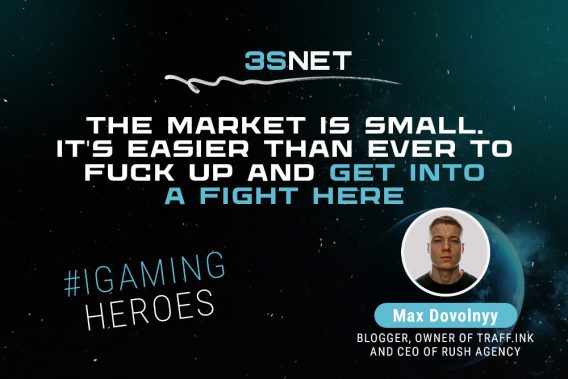
Publication date: 29 November 2021
Gambling advertising doesn’t stand still, with news about new conditions on different platforms appearing almost every day. Read what’s new about gambling advertising on Google, Meta and Facebook, Telegram and other popular social networks and messengers.
Who is obliged to place social advertising in Russia?
Starting in February 2022, social advertising will appear on the Russian platforms of Yandex, VK Group and Rambler&Co, in accordance with the new law. There are also plans to attract foreign players to the placement – Google (which owns YouTube), Meta (which owns Facebook) and ByteDance (which owns TikTok).
Let us remind you that the law on the social advertising quotas was signed by President Vladimir Putin in April 2021. It should be up to 5% of the space or time of all advertising in the media. The innovations apply to all platforms with more than 100,000 users per day.
In 2021, the Institute of Internet Development has already carried out pilot projects to place social advertising about vaccination, donation and support for the elderly.
Officials will be left without advertising!
Telegram will stop publishing advertisements in the channels of officials and government agencies. When asked about the likelihood of ads appearing in state channels, messenger founder Pavel Durov wrote: “Now we are excluding channels of state officials and government organizations from the advertising platform”.
In late October, Telegram announced a platform for advertising in the messenger, with ads appearing in any channels, including state officials, in test mode. Later, Durov promised to add an option to disable advertisements in the messenger’s channels. According to him, it was suggested by users themselves.
Google, Meta and Apple may be banned in Russia
Roskomnadzor has listed foreign Internet companies that are required to open offices in the country. In the list, published on the website of the agency, included 13 foreign companies that own 22 information resources.
We are talking about Google, which, among other things, has the Google Play app shop, video hosting site YouTube and email service Gmail, Apple (iCloud, App Store and Apple Music), Meta Platforms (owns Facebook, Instagram and WhatsApp), as well as Twitter, TikTok, Telegram, Zoom, Viber, Spotify, Likeme Pte.Ltd. (Likee), messenger Discord, photo hosting Pinterest and Twitch.
Companies will have to place electronic feedback forms for Russian users on their websites, register a personal account on the Roskomnadzor website for interaction with the authorities, as well as install a recommended traffic counter. These sites must independently identify and block illegal content.
To recap, in July 2021 Vladimir Putin signed a law on “landing” IT giants in Russia. It applies to companies with a daily audience of more than 500,000 users. From 1 January next year, they are obliged to open a branch, a representative office or a legal entity in the country.
Companies that ignore the requirement will not be able to distribute advertising on the Internet resource itself and act as a platform for advertisers from Russia. As a last resort, the authorities may partially or completely block resources.
Facebook is ready to stop advertising for gambling
Social network Facebook intends to stop advertising for gambling and sports betting on its platform. The social network’s decision follows a similar move made earlier this year by the Snapchat platform. This means that users of the social network unwilling to see such ads in their feeds will be able to customise the output to their own requirements.
The news was announced by the British Betting & Gaming Council (BGC), which calls Facebook’s decision the result of their joint cooperation over the past year. BGC representatives add that the organisation hopes to offer more new tools in the future that will be useful for users who want to minimise or get rid of gambling advertising altogether.
“A regulated gambling industry will continue to promote safer gambling as opposed to the unsafe and growing black market online, where there are no safeguards in place to protect players,” commented BGC executive director Michael Duger.
Earlier this year, BGC representatives also reported that they had sent a message to Twitter and Facebook urging them to set age limits for social media accounts. Such a measure would ensure that only adult users would see gambling advertisements.
Share it with your friends via favorite social media
Similar posts

Advertising on Facebook during COVID-19 outbreak
In response to the coronavirus outbreak, Facebook has decided to send home all contract workers ...





























